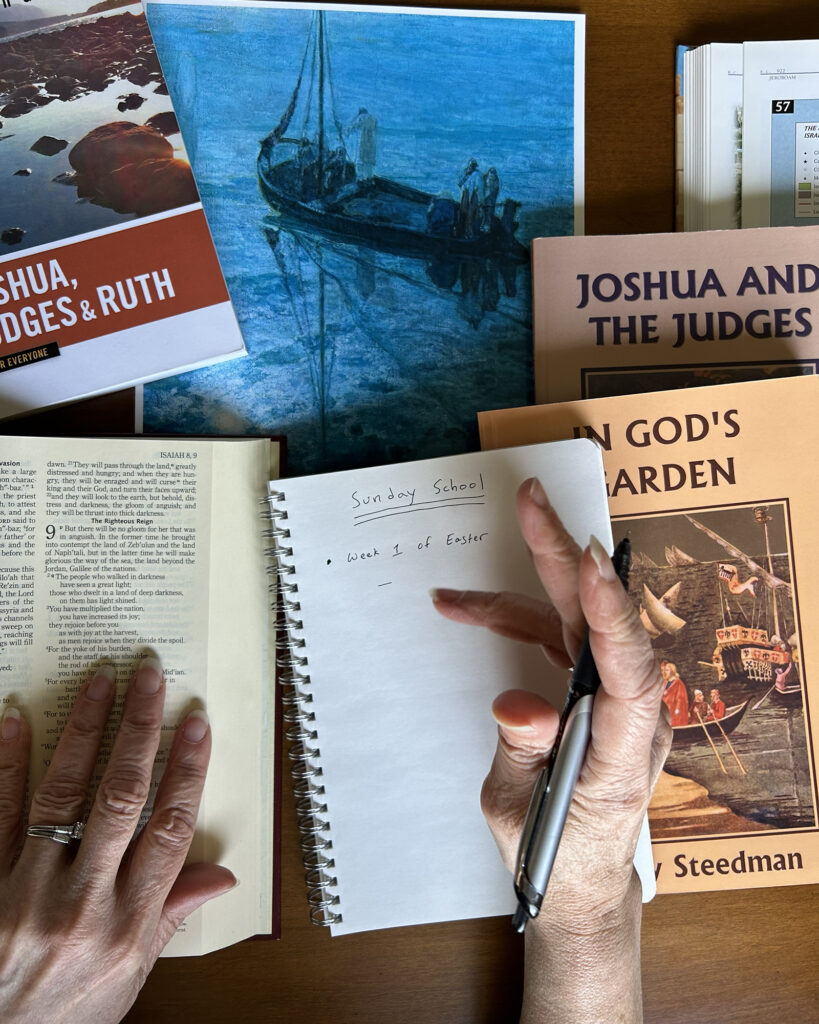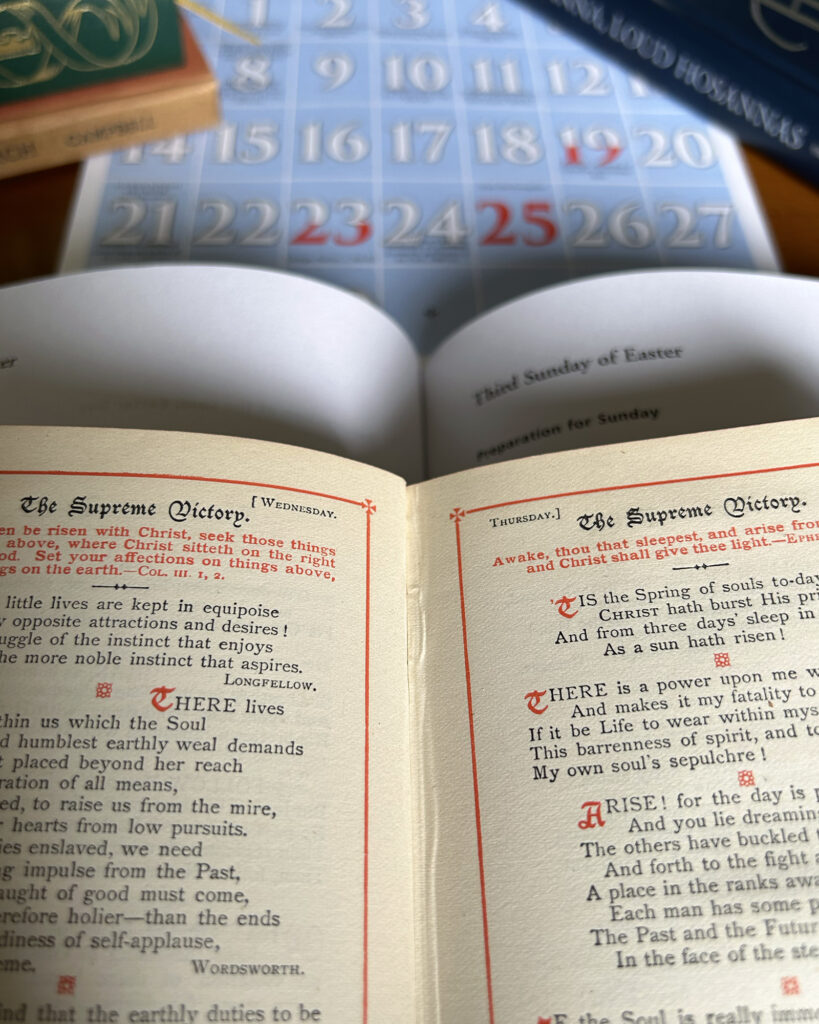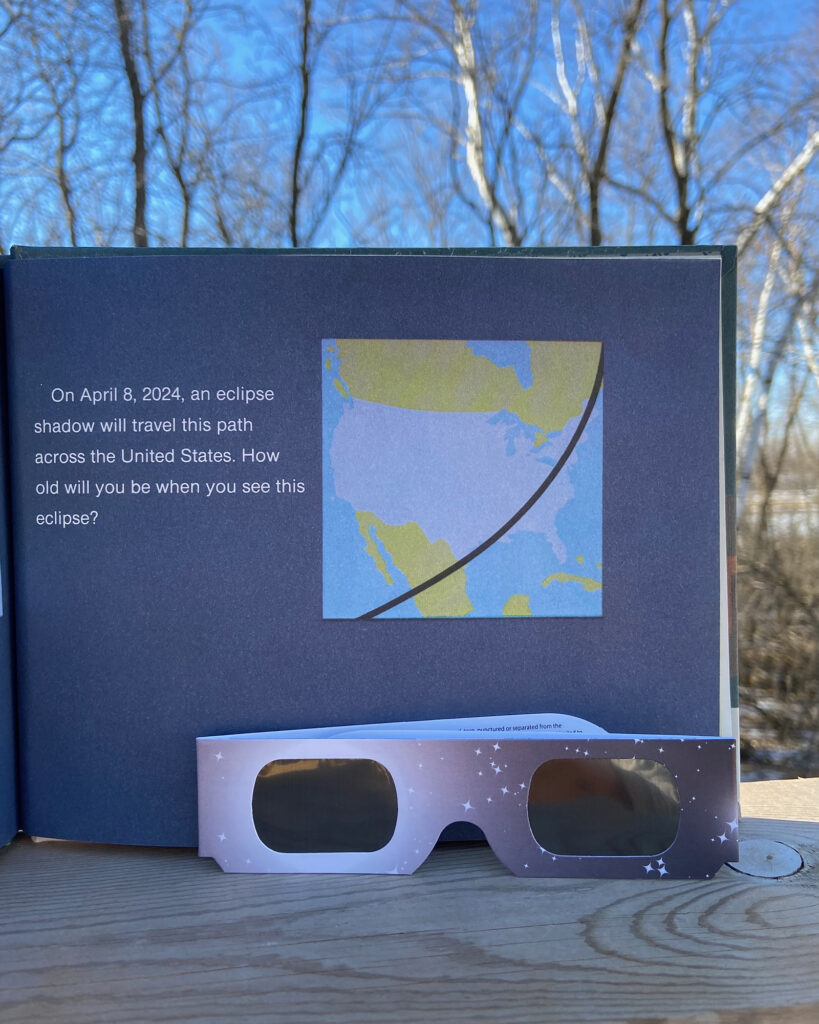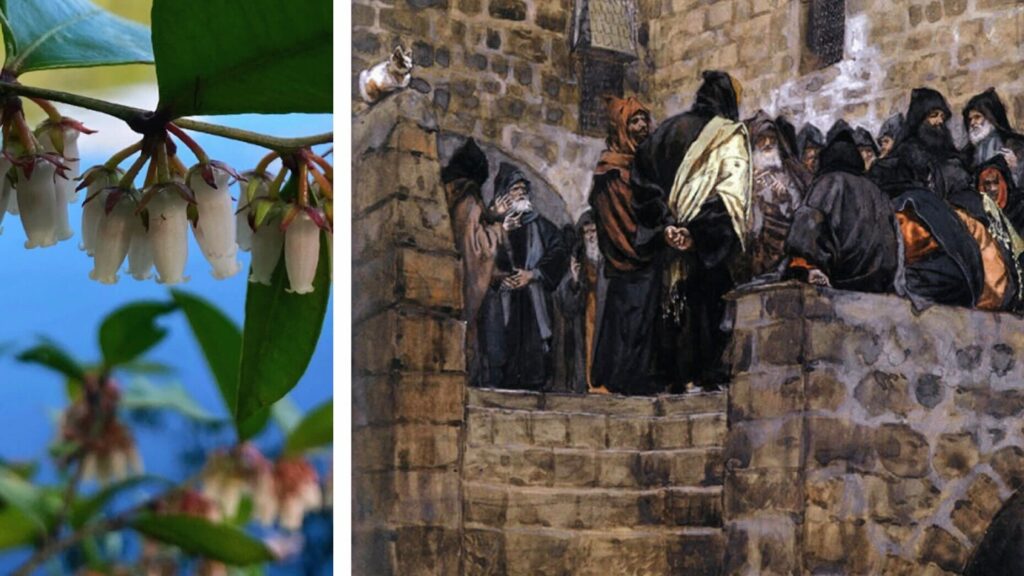The CMP Review — Week of April 1
April 1, 2024

“I do believe that for children under six, a garden offers endless opportunities for training and developing on every side. Hand and eye, brain and soul, all are trained and strengthened, and under God’s bright sun and soft rains the child grows sweet and fresh as any flower. The garden becomes the most heavenly place in the world, and ‘my garden’ only exists when the child’s need of expression becomes so poignant as to make it a sheer necessity to him.” (PR28, “The Child in the Garden,” p. 537)
@tessakeath
April 2, 2024

Parents and teachers who experience the beauty and effectiveness of the Charlotte Mason method often want to share it with others. Many hope to bring this wonderful philosophy to their churches. But what exactly would a Sunday school look like that was inspired by Charlotte Mason’s ideas?
I know of several people who have attempted to answer this question, and two real-life accounts have been shared on our blog and podcast, one in 2017 and the other in 2022. They both provide encouragement and inspiration.
Interestingly, however, this is not just a question of our century. As far back as 1926, Charlotte Mason educators wanted to share the method with their churches. Their stories were printed in the Parents’ Review, and now you can read and hear them online. They complete the circle of witnesses that show us how we can teach our children on Sunday mornings the Charlotte Mason way. Find it here.
@artmiddlekauff
April 3, 2024
Watercolor tutorial — spring vetch.
This brush drawing uses a combination of only three strokes: the basic stroke (which I call a petal stroke), a curved stroke, and the line stroke. See details on individual strokes on our brush drawing resource page.
Some notes:
Each leaf can be formed with one stroke using a larger sized brush. Here I used a #4, which meant I had to go over each leaf about four times to make it life-size.
To join the leaves to the stem, use a clean damp brush to lift paint off to make a vein running through the center of each leaf, then drag the lifted paint down to make the petiole.
Happy nature journaling!
@rbaburina
April 4, 2024

“Some few persons have a happy knack of knowing what the rest of us desire and of satisfying our unconscious wish with a certain literary and artistic grace,” wrote Charlotte Mason in 1919. “Mrs. Gell is evidently one of these happy persons. Long ago she gave us The Cloud of Witness and it remains the daily companion of many earnest souls.”
Miss Mason did her best to make it the daily companion of the earnest souls who left the House of Education. “Her parting present to leaving students was always ‘The Cloud of Witness,’ edited by Mrs. Gell,” wrote one graduate. “This makes one of the many bonds which bind all ex-students together.”
Mrs. Gell’s book offers daily readings based on the church calendar. Mason recommended this calendar to PNEU students as well, noting that “even those who do not belong to the Church of England would find her Sunday Collects, Epistles, and Gospels helpful, as giving the young people something definite to think about, week by week.”
In the PNEU programmes, Mason advised the young people to follow the lectiones (daily Bible readings) published by Spottiswoode. These daily readings, which supplement rather than replace Bible lessons, were derived from the church calendar. I have seen samples, and they remind me of the Revised Common Lectionary of today.
When I look at the liturgical calendar for April 2024, I see a sea of white, as the entire month is set in Eastertide. I look forward to reading Edith Gell’s collection of Easter meditations each day, and our family’s hymns will draw from the richness of the season, but I wonder if I could do something more. How do you plan to celebrate the eight weeks of Easter? Please let me know by sharing your ideas and family practices in the comments.
@artmiddlekauff
April 5, 2024

In preparation for Monday’s solar eclipse, I pulled this book down from our science and nature picture book shelf.
Eclipse: Darkness in Daytime, by Franklyn M. Branley. It’s one of the “Let’s-Read-and-Find-Out Science Book” series.
And just look at this!!! I have the version that was reprinted in 1988. A few decades later, and here we are! Isn’t that cool?
Do you have eclipse plans? Are you traveling to a location on the path of totality? Do you have eclipse glasses? Or are you going to make a cardboard viewing contraption? Or will you use a colander?
We’re staying put, though we’re nowhere near the path, but we are hoping to be able to see something exciting from right where we are! Hoping for clear skies!
@antonella.f.greco
April 6, 2024


Some of the neighbourhood children came running, quite excitedly, to show me the “cool skull” their parents had found on a walk in our forest.
We really enjoyed looking at how the plates come together with such an interesting design.
Very cool, indeed!
@antonella.f.greco
April 7, 2024

“We say some things on our own, by ourselves, where there is no power that inspires us to speak,” wrote Origen of Alexandria in the 3rd century. “But there are other things that we say when some power prompts us (as it were), dictating what we say, even if we do not fall completely into a trance and lose full possession of our own faculties, but seem to understand what we say. Now, it is possible for us, while we understand what we say on our own, not to understand the meaning of the words that are spoken.”
How could a person not understand the meaning of the words that he speaks? When could such a thing happen?
According to St. Augustine, it can happen when one holds a sacred office. He cites the Apostle John as his authority, who “attributes this power to the divine sacramental fact [of being] the high priest.”
And so Origen continues: “This is what happened in the case of Caiaphas the high priest. He did not speak on his own, by himself, nor did he understand the meaning of what he said, since it was a prophecy that was spoken.”
The prophecy was recorded in John 11:51–52. The high priest did not understand its meaning, but Charlotte Mason did. Read or hear her convicting and inspiring poem “What do We?” here.
@artmiddlekauff